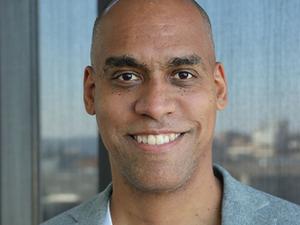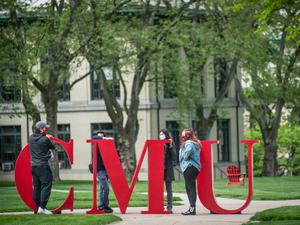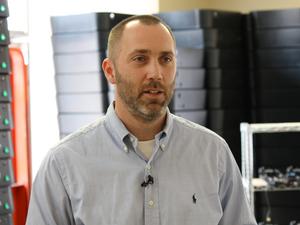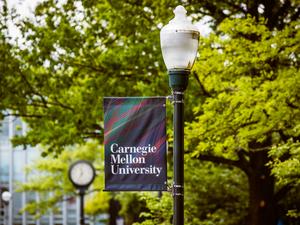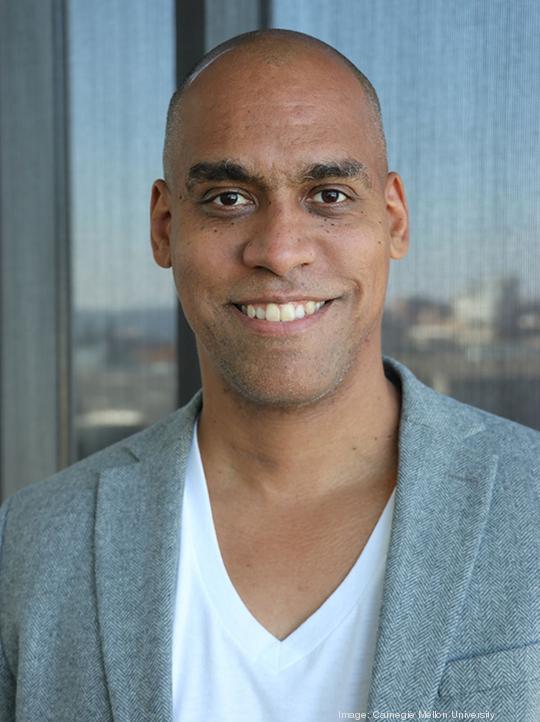
2021 was known as the year of The Great Resignation, when large numbers of people quit their jobs and either left the workforce or found new roles to fulfill. The individuals profiled on these next few pages all took on positions vacated by their predecessors. We asked each of them to share their goals and plans for their organizations in 2022. They bring to the table new ideas, new opportunities and new perspectives.
Matthew Johnson-Roberson is on a mission to tell everybody about the transformative robotics advancements that are coming out of Pittsburgh.
In November, Carnegie Mellon University announced that Johnson-Roberson will serve as the new head of its Robotics Institute starting in January, though it’s far from the first time he’ll be on the university’s campus. A 2005 graduate of CMU’s computer science program, Johnson-Roberson returns to Pittsburgh after having previously served as co-director at the University of Michigan’s Ford Center for Autonomous Vehicles. He also founded and led the Deep Robot Optical Perception Lab at the University of Michigan, where he maintained an associate professor of engineering role in the university’s Department of Naval Architecture and Marine Engineering and the Department of Electrical Engineering and Computer Science.
Now he’s back on CMU’s Oakland campus and is ready to start championing the robotics efforts of the region, efforts he said are accelerating.
“It’s an honor to be able to come back and to work with many of the same people and have the opportunity to try to hopefully give back to the Robotics Institute because it really has given me so much,” Johnson-Roberson said. “I’m really excited about being able to help and facilitate new students, new young people learning about robots and hopefully going off and doing things that change the world. I couldn’t be more excited to have this job.”
Founded in 1979 in partnership with Westinghouse, the Robotics Institute aims to serve as a hub for graduate students to gain the necessary experience and education that is needed to become future leaders in robotics. It counts more than 930 people among its faculty, staff and student participants and has access to nearly 200,000 square feet of space between its two locations at its CMU headquarters and at the National Robotics Engineering Center in Lawrenceville.
Continuing on the legacy of the Robotics Institute is important, Johnson-Roberson said, and he plans to reach out to local school districts on behalf of the institute to show young students all the possibilities robotics offers in terms of career paths. Pittsburgh on its own has plenty to offer in that regard, he said, but furthering that awareness to others is important if the next generation is to continue the work that’s being done in the region today.
Equally as important as that, however, is making sure the robotics industry is known not just as a field for all, but a field that’s intentionally welcoming of people from differing backgrounds, Johnson-Roberson said. He hopes to better implement new ways for the organization to capture the minds and interests of those from diverse populations of students.
“I want to make sure that we create this environment where young people have the opportunity to pursue whatever they find exciting, and I think the more we can show that robotics is not only just an interesting path, but a fulfilling and career-defining path for the broadest amount of people we can, the better that’s going to make our robotic systems, the better it’s going to make the way that we design those systems and the more it’s going to help us to make robots that make the world a better place.”
Building a complex robotics system without the intersections of different subfields like mechanical and electrical engineering, computer science, AI and others is an impossible task, Johnson-Roberson added. These systems, complex in their own respective realms, get easier to build when there is a variety of thought and people that join together to work on them, an effort that makes the robotics industry more of a team sport unlike most other fields, Johnson-Roberson said.
“I think the incredible thing about trying to build a diverse community of learners and researchers is that people have very different experiences in the world and that means they bring that to designing a system that needs to interact with the world,” Johnson-Roberson said. “When you have teams that are more diverse, I think that really leads to this powerful effect where people say, ‘well, have we thought about that, have we thought about this,’ and as we build these systems that go out there and interact with people day in and day out, whether they are AI systems, robotics systems, whatever, having that diversity of thought, I think, makes our systems much more effective.”
